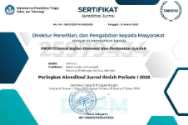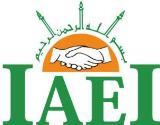JASA GESTUN SHOPEE PAYLATER SISTEM BARCODE DI E-COMMERCE MARKETPLACE SHOPEE PERSPEKTIF EKONOMI SYARI’AH
(1) * Retno Indah
 (Universitas Islam Negeri Maulana Malik Ibrahim Malang)
(Universitas Islam Negeri Maulana Malik Ibrahim Malang) Indonesia
(2) Masyhuri Mahfudz (Universitas Islam Negeri Maulana Malik Ibrahim Malang)
Indonesia
(*) Corresponding Author
AbstractThe existence of Shopee Paylater is a form of development in the world of technology that makes it easy for everyone to shop from anywhere and at any time through the Shopee Paylater marketplace. The limit provided at Shopee Paylater also makes it easier for buyers who don't have money to use the existing limit on Shopee Paylater, which ranges from 750,000 to tens of millions. The system implemented in Shopee Pay later is buy now pay later. However, as time went on, many did not follow the existing regulations at Shopee Paylater with the emergence of a cash swipe service or commonly called a gestun which was used to withdraw the existing limit on Shopee Paylater. Actions like this clearly violate the regulations in the Shopee application itself. The purpose of this study is to find out whether the Shopee Paylater gesture service is in accordance with the principles of the Shari'ah Economy. The method used in this study is a descriptive qualitative method in which the researcher describes how the practice of gestune barcode services on Shopee Paylater and a review of Islamic law is in accordance with the principles of shari'ah. The results of this study are that the practice of gestune services is not allowed because it has violated the rules in the Shopee Paylater marketplace. From the point of view of Islamic law, withdrawing the limit on e-money is one of the conditions if you want to use e-money. However, in terms of liquidating the limit on Shopee Paylater it is not allowed because it has clearly violated the regulations in the Shopee marketplace. |
Keywords
Full Text: PDF
Refbacks
- There are currently no refbacks.
Copyright (c) 2023 Retno Indah, Masyhuri Mahfudz
This work is licensed under a Creative Commons Attribution-NonCommercial-ShareAlike 4.0 International License.
Published by Islamic Faculty of Nurul Jadid University, Probolinggo, East Java, Indonesia.





.jpg)



